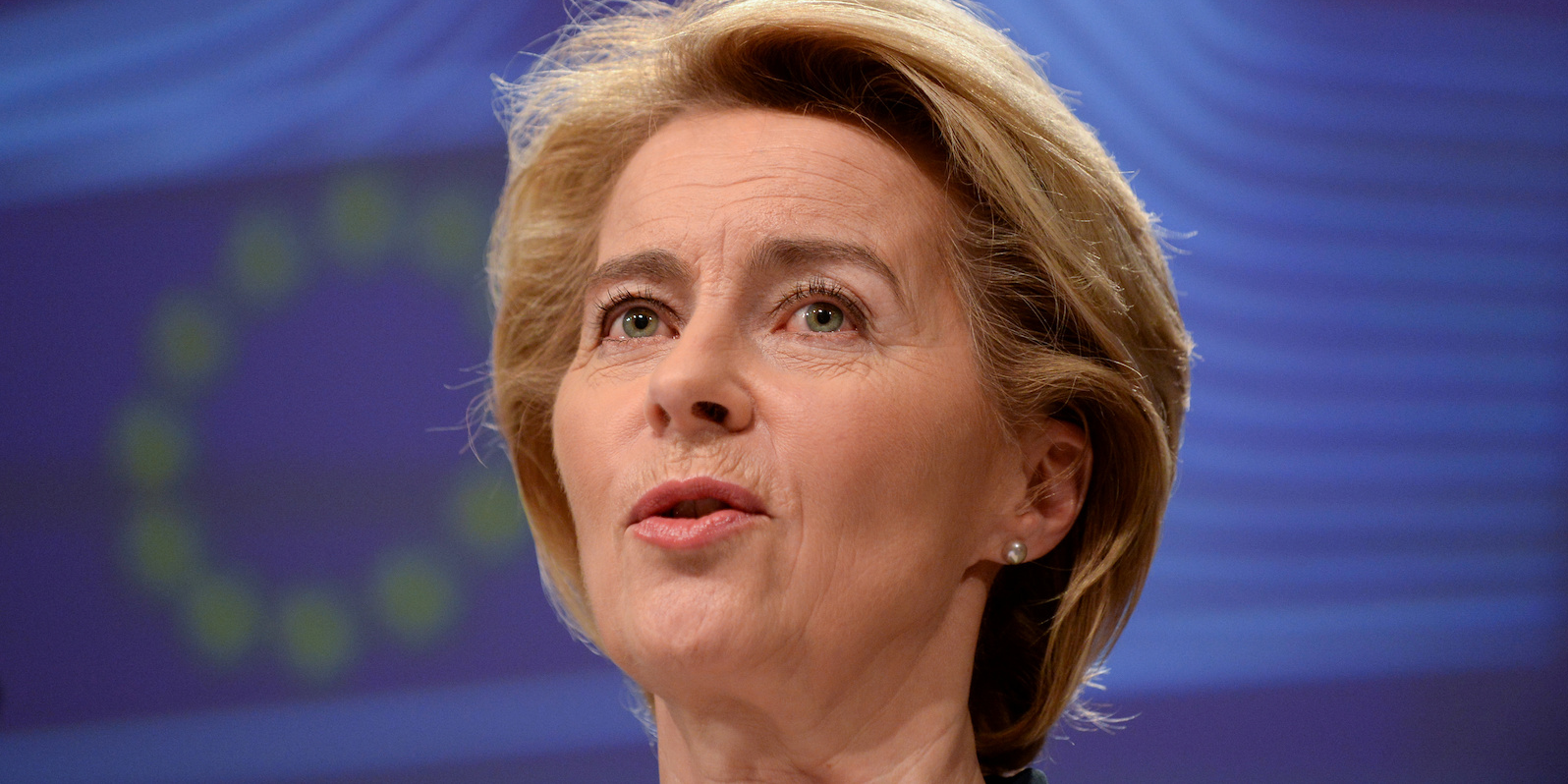- The European Union will ban all nonessential travel into the bloc for at least 30 days.
- European Commission President Ursula Von Der Leyen said the move was needed to contain the coronavirus outbreak.
- The EU last week condemned President Donald Trump’s ban on travel to the US from 26 European countries.
- The EU’s ban will not include the United Kingdom, which left the EU in January.
- Visit Business Insider’s homepage for more stories.
The European Union will restrict all nonessential travel into the region for at least 30 days, European Commission President Ursula von der Leyen announced on Monday.
Only essential travel will be allowed for at least a month once the plan is approved by European leaders.
“The less travel, the more we can contain the virus,” von der Leyen said in a video statement, adding, “I propose to the heads of state and government to introduce temporary restriction on nonessential travel to the European Union.”
She said in a press conference: “We think nonessential travel should be reduced right now in order not to spread the virus further, be it within the European Union or by leaving the European Union, but also to avoid nonessential travels not to have more potential strain on our healthcare system.”
The @EU_Commission presents guidelines on border measures & proposes:
1⃣Green lanes/fast lanes giving priority to essential transport to keep the mobility sector going & ensure economic continuity
2⃣Temporary restriction on non-essential travel to the EU (30 days) pic.twitter.com/9bda9MntF0
— Ursula von der Leyen (@vonderleyen) March 16, 2020
Members of the Schengen travel area - including the non-EU members Iceland, Liechtenstein, Norway, and Switzerland - will not be affected by the rules. The United Kingdom, which left the EU in January but remains in a transition period with the bloc, will also be exempt.
Under the plan, visitors from non-EU states will not be allowed to enter the region unless they are long-term residents of the EU, family members of EU nationals, diplomats, cross-border commuters, or essential workers like doctors, nurses, and researchers, von der Leyen said.
The transport of goods will also be exempt from the restrictions.
How the United Kingdom will be hit by the EU travel ban

Citizens from the United Kingdom, which left the EU in January, will still be able to enter mainland Europe under the new rules.
"The UK citizens are European citizens, so of course there are no restrictions for the UK citizens to travel to the continent," von der Leyen said.
However, the UK will be asked to abide by the new rules.
A senior EU source told Business Insider that "EU law continues to apply in the UK during the transition period."
So despite no longer being in the EU, the UK is still expected to implement its law, including the travel restrictions announced on Monday, while in the yearlong Brexit transition period.
The UK government has not responded.
The EU condemned a similar ban on travel to the US from 26 European countries imposed last week by President Donald Trump.
In a joint statement last week, von der Leyen and the European Council President Charles Michel accused Trump of failing to consult with European countries before making the decision.
"The coronavirus is a global crisis, not limited to any continent, and it requires cooperation rather than unilateral action," the statement said.
"The European Union disapproves of the fact that the US decision to improve a travel ban was taken unilaterally and without consultation."
